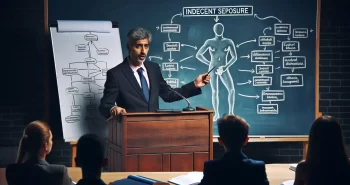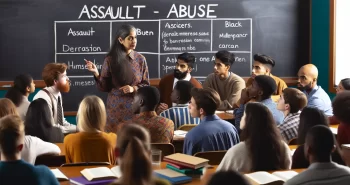Which is an Effective Coping Method for Victims of Sexual Assault? Legal Options

Victims of sexual assault have legal options to protect their rights and seek justice. This page explains how to report the assault, consult an attorney, and pursue civil claims for compensation, ensuring survivors can take actionable steps to hold offenders accountable.
Reporting the Assault and Legal Guidance
Talking to a therapist or counselor who understands trauma can be a huge help. It’s like having a safe spot to unload your feelings and sort through the mess. Therapy helps you figure out what’s what with your emotions and guides you to healthy ways to cope and start feeling like yourself again.
Leaning on friends, family, or support groups can make a world of difference. Being around people who get it can give you comfort and make you feel less alone. Opening up to someone you trust eases that lonely feeling and helps in piecing yourself back together.
Taking care of yourself with things like mindfulness, meditation, working out, and good grub is a big deal for feeling better. These self-care routines can give you back a sense of control and boost your strength to face each day, a step at a time after the assault.
Being part of a support group with other survivors gives you the chance to connect over shared experiences. It’s a space where you can feel understood and meet others walking the same path. Group therapy fosters a community vibe, which is comforting and helps in finding strength together.
By trying out these coping methods, victims of sexual assault can start to tackle their trauma, build resilience, and heal from such a deep wound. It’s about taking care of yourself, whether that means seeing a professional, surrounding yourself with supportive people, or finding a community that empowers you.
Table of Contents:
Legal and Procedural Considerations
Talk about a rough patch! Going through sexual assault can seriously shake a person up, messing with both their mind and body. It’s crucial to understand and tackle the waves of feelings and hurdles that might come after such a harrowing experience.
Physical and Emotional Responses
Folks who’ve been through sexual assault can find themselves caught in a whirlwind of physical and emotional responses. It can really show up in surprising, unexpected ways:
- Flashbacks: Imagine you’re sipping your morning coffee, then—bam!—a memory barges in like a rude guest. Flashbacks can hit without warning, dragging a person back into the event, almost like being yanked into a time warp. These flashbacks can feel absolutely crushing, rattling one’s perception of safety and peace.
- Re-experiencing: Think of it as your brain hitting the replay button on a horror movie, except you’re the star. Dreams turn into nightmares, and thoughts can spiral out of control with memories of the assault (Loyola University Maryland). This relentless replay can unleash a storm of emotions, making it hard for survivors to keep their balance.
Common Challenges: Shame, Guilt, and PTSD
Beyond the physical and emotional chaos, survivors often wrestle with some heavy-hitting feelings like shame and guilt, along with dealing with disorders like PTSD, which can seriously mess with their head and heart:
- Shame and Guilt: Survivors might find themselves steeped in shame and guilt after a sexual assault (Loyola University Maryland). It’s like they’re stuck in a loop of self-blame, convinced they could have somehow sidestepped the ordeal.
- Post-Traumatic Stress Disorder (PTSD): PTSD is no stranger here; it loves to crash the party after traumatic events like sexual assault. With symptoms like flashbacks, nightmares, intrusive thoughts, and an emotional freeze-out, PTSD digs its claws deep into everyday life (Mayo Rape Crisis Centre). This disorder makes it a Herculean task just to keep up with daily life and handle stress.
Facing these reactions and challenges head-on calls for a thorough game plan, like getting professional psychological support, surrounding oneself with a safety net of loved ones, taking up self-care habits, and considering group therapy. By embracing the reality of the hurdles brought on by sexual assault and actively working to overcome them, individuals can make strides towards reclaiming their lives and mending.
Legal Options for Victims
Dealing with the pain of sexual assault is no walk in the park, but trust me, getting through it is possible. Here are some essential tips to find strength and heal:
Seeking Professional Support
One of the main lifelines for sexual assault survivors is therapy with a mental health professional. It’s a place where you’re safe to talk through your trauma, sort out its impacts, and learn how to heal. Take Cognitive Behavioral Therapy (CBT), for instance; it’s all about swapping out those negative thoughts for better ones. This shift can make a huge dent in PTSD symptoms and boost your coping skills (Charlie Health).
Building a Support Network
Having your crew around—whether it’s family, friends, or colleagues—makes a world of difference when healing from sexual assault. And let’s not forget about support groups. These spaces can really help survivors swap stories, regain their footing, and feel part of a community again (Firefly Children and Family Alliance).
Self-Care Practices
Now, taking care of yourself after something this tough is crucial. We’re talking about managing any health issues with the right experts and making time for activities that boost your mental, emotional, and physical well-being. Every little bit helps in piecing things back together.
Joining Support Groups
Joining a support group is like finding a bunch of people who just get it. You can talk openly, feel understood, and even learn a thing or two from others who’ve been there. These groups offer a safe place to pour out your thoughts and emotions and connect on a deeper level with shared experiences.
Using these tips, survivors can truly step into healing, self-strength, and finding their path through the tough stuff. Remember, reaching out for help and looking after yourself means you’re strong and brave.
Legal Options for Survivors
If you’ve been harmed by sexual assault, knowing your legal choices is vital for seeking justice and holding those responsible to account. Reporting the assault, getting advice from a sexual assault attorney, and checking out ways to seek compensation are essential steps in the legal process for survivors.
Reporting the Assault
Telling the police about what happened is a big first step in getting legal help. By coming forward, you help make sure offenders are held responsible and can stop more harm from happening. This starts an investigation that might lead to criminal charges. If you’re not sure how to report sexual assault, talk to local police or advocacy groups for help and advice.
The Role of a Sexual Assault Attorney
Figuring out the legal maze after an assault can be tough and stressful. A sexual assault lawyer is someone who knows how to represent survivors and fight for their rights. They guide you through the legal process, including handling interactions with law enforcement, prosecutors, and court appearances. They’ll help you understand your rights, explore justice options, and aim for the best possible outcome.
Seeking Compensation for Damages
Apart from criminal justice, survivors may go for civil legal action to seek compensation for damages. This could cover losses like medical bills, therapy sessions, lost income, and pain suffered. A sexual assault attorney can help you understand your losses, prepare a strong case, and push for fair compensation through lawsuits or settlements.
Knowing and using the legal options available to you can be a significant part of healing, seeking justice, and regaining safety and control in your life. Remember, you’re not alone—there are resources, professionals, and support systems ready to back you up. If you’re a survivor considering legal action, connect with advocacy groups, legal experts, and support communities for advice and assistance.










